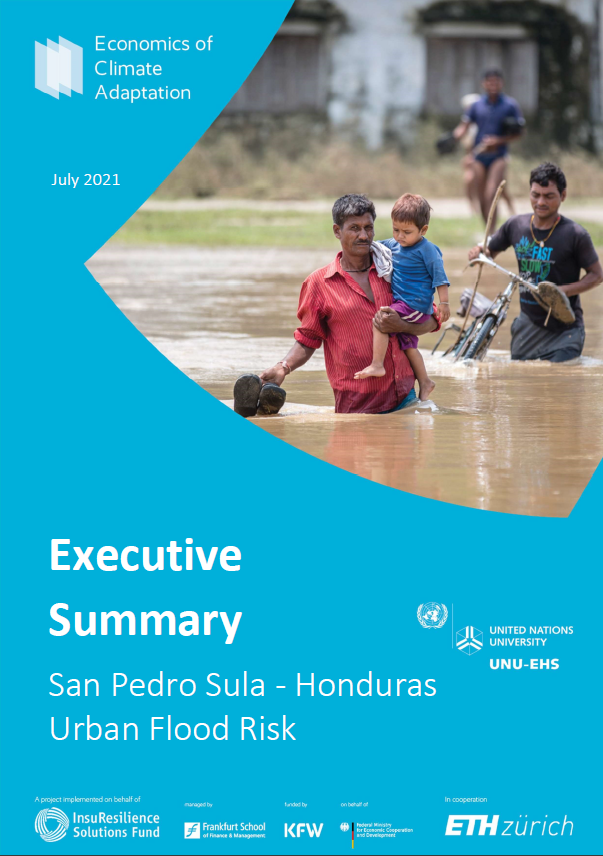There is a growing consensus that climate change impacts should be considered in the development of adaptation strategies by decision makers at all levels. This requires identifying cost-efficient adaptation measures, resulting from a structured risk management approach. The approach taken under the “Economics of Climate Adaptation (ECA)” framework provides decision makers with information about potential climate-related damage to their environment, economies and societies. The results allow a flexible identification of cost-effective climate adaptation measures for a variety of projects and sectors.




CLIMADA is a tool which implements the quantitative modelling and simulation part of the ECA Methodology. CLIMADA stands for climate adaptation and is a probabilistic natural catastrophe damage model, and it calculates averted damage due to adaptation measures of any kind, e.g. from grey to green infrastructure.
Around the world, various ECA projects are being, and have been, implemented, at varying scales, concerning a wide array of assets, hazards, institutional and data environments. Explore the diversity of the ECA methodology here.
Find more information about ECA and discover available reports, guidebooks, factsheets and other documents.














